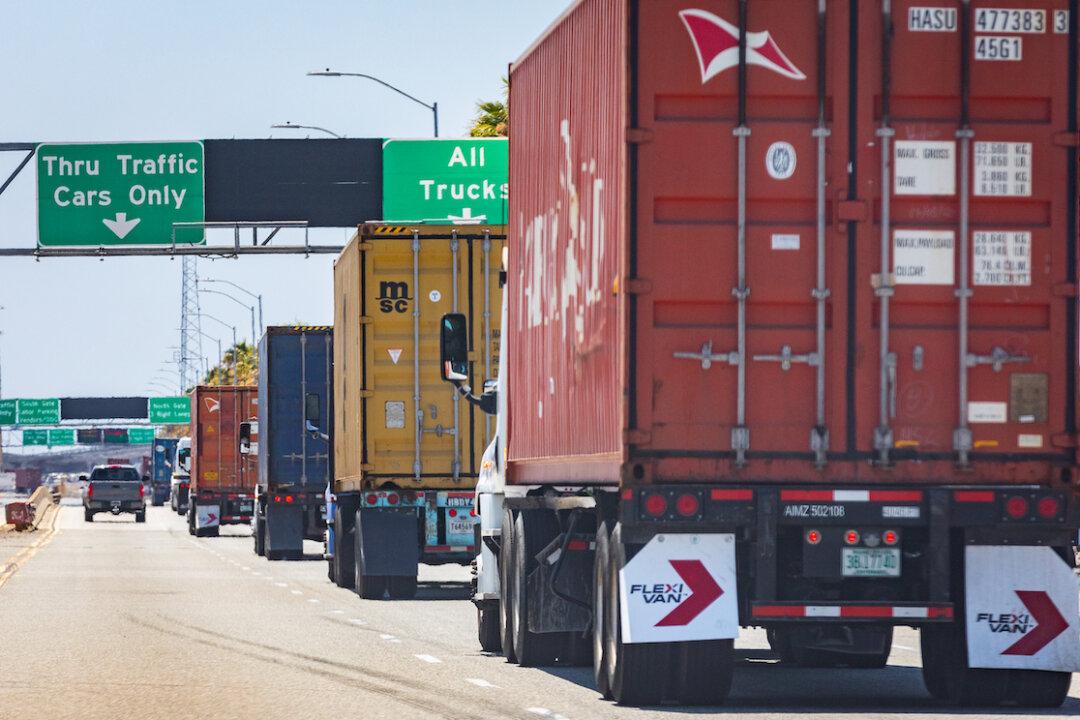The California Trucking Association is suing the state’s air-quality agency over a new climate action rule that requires truckers to switch to zero-emissions vehicles by 2042, claiming it “threatens the security and predictability” of the trucking industry.
In a federal lawsuit filed against the California Air Resources Board (CARB) Oct. 16 in Sacramento U.S. District Court, the trucking association is seeking the court to permanently stop the agency from enforcing its Advanced Clean Fleets rule that goes into effect Jan. 1.





